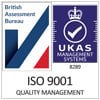Using employment application software in the real world involves a number of very practical challenges. Having a great CV/resume parser and easy-to-use CV/resume search software isn’t enough to ensure a truly efficient recruitment process. This article looks at some of the typical bottlenecks and obstacles that recruiters have to overcome on a day-to-day basis – and which have been addressed in DaXtra’s Suite of employment application software products.
The Real Challenges of Employment Application Software
Processing CVs from multiple sources in a variety of formats, or having to work with legacy databases in multiple locations can be just as much of a challenge for automated employment application software as it is for human recruiters – unless that software has been specially designed to handle these issues. Here we look at some of the typical real world issues faced by many of DaXtra’s clients, and how our range of software helps to deal with them.
Duplicate and updated CVs – When resumes are being entered into the system from multiple sources and when applicants can update their online CVs and profiles almost instantly via the internet, this creates significant issues for employment application software. If undetected, duplicates and near-duplicates can cause significant confusion when conducting database searches. DaXtra Capture is able to detect when a new incoming CV is for the same person – either an exact duplicate or an update – and merge records, adding any new data to the existing record.
CVs in different formats and layouts – Having CVs arrive in different formats with similar data in different places from CV to CV can be a challenge even for human readers, slowing down the process of scanning CVs for likely candidates. For many years, individual companies would dictate preferred format and required data in an effort to make the task of processing – whether by humans or by computers – easier and quicker. But in the age of social recruiting and CV acquisition from online job boards, this is no longer possible. DaXtra Parser addresses this problem by extracting data from a CV regardless of its position on the CV or how it has been formatted. All resumes are converted into a common format, ready for searching.
Data entry errors – Before the advent of reliable CV parsing software, humans were the most accurate way of determining the meaning of data on a CV and data would be entered manually into the recruitment database. But, however reliable humans may be at reading and understanding a CV, their ability to input that data accurately into a computer is somewhat less so – often resulting in data entry errors which can then cause problems in terms of the searching and matching process. Using DaXtra Parser eliminates this source of error from the CV processing stage.
High volume of CVs – This is one of the biggest challenges facing recruiters today and arises from a combination of high application rates supplemented by online CV acquisition which can generate hundreds of CVs. The challenge is to accurately but quickly turn all CVs into a common format, ready for automatic job matching or manual searching. DaXtra Parser can parse resumes in just a few seconds with up to 95% accuracy. This capability turns the arrival of hundreds of CVs from an expensive bottleneck into a recruiting advantage, widening the pool of potential candidates at essentially no additional cost.
Searching multiple job boards – While the rise of online job boards has undoubtedly helped both recruiters and applicants to fill or find suitable vacancies, there are now so many that the task of regularly checking them for CVs has become unfeasible for recruitment consultants to carry out manually. DaXtra Search can be set to automatically search a range of job boards or business networking sites (subject to permission) and notify consultants when new matches are found.
Legacy databases – Most established companies or recruitment businesses already have some kind of recruitment database, CRM or ATS, and most don’t relish the idea of having to go through the pain of switching to a completely new database in order to get the benefits of new processing features. DaXtra Parser can turn new CVs into a variety of different formats, or a bespoke format as required, to be compatible with most existing databases, eliminating the pain points of switching to a more functional database.
Multiple office locations – Large companies often have multiple office locations either within a country or even globally. And each office may be responsible for recruiting its own staff. But it’s becoming increasingly desirable for these offices to become more interconnected, to improve visibility across the company, to apply consistent recruitment policies and for general efficiency. For instance, if job roles are duplicated in different offices, then it makes sense for all offices to be able to see CVs of all applicants applying for a similar type of role. Using DaXtra Search Services enables multiple databases to be searched with a single query, allowing CVs acquired by one office to be made available to all.
Skills in freeform language – Extracting skills from a curriculum vitae or resume is perhaps the most important part of assessing candidate suitability, but it is also the data least likely to be presented in a simple or consistent form. While some CVs may list skills in a simple way, they are usually embedded within freeform sentences or paragraphs. This makes picking out skills quickly and reliably a significant challenge, especially when the surrounding language can greatly affect the meaning that should be attached to a skill (e.g. consider “Basic level C programming,” versus “10 years experience of C programming”). The industry sector can also greatly change the meaning of some words: for instance, what may have a general meaning in everyday language can have a very specific meaning in a particular industry. A good example being the initials, “M.D.” This can have various meanings – from Medical Doctor, to Maryland, to Managing Director. DaXtra Parser is able to extract skills taking into account the context of the surrounding language – and we provide skills taxonomies for a wide range of industry sectors to further enhance accuracy.
Employment Application Software - To find out more about how DaXtra’s software can help your recruitment operation please contact us.



